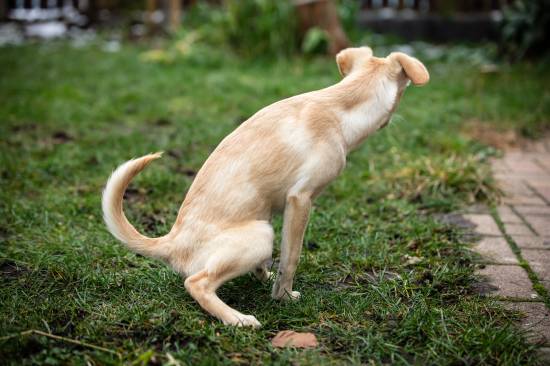Connect with a verified veterinarian in minutes. Licensed vets are available 24/7 to answer your questions. No need to worry about your furry family member.
Some dogs take a while to find the right place to get their business done. Why? There are several reasons that we’ll explore in this article.
Have you noticed your female dog is taking a long time to pee? Have you noticed any other symptoms or new behaviors with your dog? If so, you’ve come to the right place. We understand this can be a concerning issue with your dog.
We’ve put together some information about why female dogs can take a long time to pee. Let’s get started!
Why Female Dogs Take a Long Time to Pee
There are several reasons a female dog can take a long time to pee, including:
1. Scent Marking
Female dogs can and do scent mark like male dogs. The dog’s goal could be to mark her territory and warm other female dogs she’s the leader of the pack in that area.
Urinating leaves behind certain odors that other dogs can smell. They can gain a lot of information from those scents, including the information this is another dog’s territory.
2. Performance & Location Anxiety
Some female dogs suffer from the same anxieties as humans—they have a hard time going potty in public and in certain places. Some areas may pose too many distractions. And some female dogs just prefer to go in the privacy of their own yards.
Then there are female dogs who may prefer to go on grass or other soft surfaces rather than a hard place such as a sidewalk. It all comes down to the dog’s preference and whether or not she feels anxious in certain places.
3. Medical Conditions
There are also medical conditions that make it difficult or painful to urinate. Female dogs suffer from urinary tract infections (UTIs) more often than male dogs. That’s because female dogs have a shorter urethra than male canines.
Another potential problem can be bladder stones or crystals. These may be caused by infections, diet, and other issues. Crystals can form in the bladder and become large enough to block the urethra. When this happens, the dog may have a difficult time urinating, and she may also have pain when she tries to go.
How to Help Your Dog
It’s best to always keep an eye on your dog’s urinating habits. If she suddenly develops problems, she may have an infection or other problem that makes it hard to go. You may notice she has a fever, blood in her urine, that she’s lethargic and more. These are all signs it’s time to call the vet.
If your dog is scent marking, there’s not much you can do about that except be patient. Wait for her to find the right spot to urinate.
And if your fur baby has performance & location anxiety, that’s OK, too. Be sure to let her go in the yard after your walk. She’s sure to find the right spot to go and get her business done quickly!
Connect with a verified veterinarian in minutes. Licensed vets are available 24/7 to answer your questions. No need to worry about your furry family member.

Julie
Julie is a graduate of the University of North Carolina, Wilmington, where she studied Animal science. Though contrary to the opinion of her parents she was meant to study pharmacy, but she was in love with animals especially cats. Julie currently works in an animal research institute (NGO) in California and loves spending quality time with her little cat. She has the passion for making research about animals, how they survive, their way of life among others and publishes it. Julie is also happily married with two kids.
Review symptoms, medications & behavior to keep your pets healthy with a Vet Online in just minutes.
Ask a Vet Live Now

